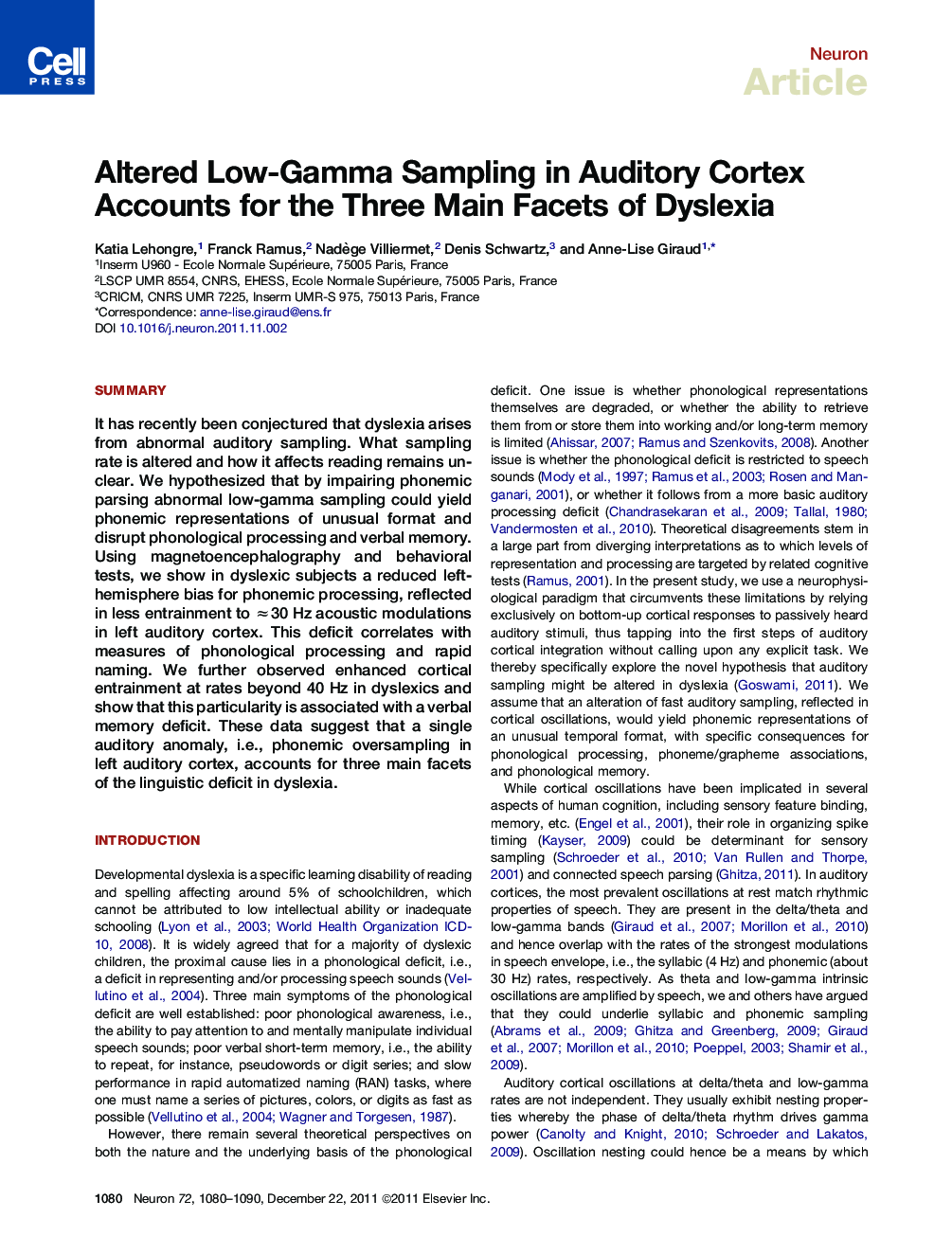| Article ID | Journal | Published Year | Pages | File Type |
|---|---|---|---|---|
| 4321417 | Neuron | 2011 | 11 Pages |
SummaryIt has recently been conjectured that dyslexia arises from abnormal auditory sampling. What sampling rate is altered and how it affects reading remains unclear. We hypothesized that by impairing phonemic parsing abnormal low-gamma sampling could yield phonemic representations of unusual format and disrupt phonological processing and verbal memory. Using magnetoencephalography and behavioral tests, we show in dyslexic subjects a reduced left-hemisphere bias for phonemic processing, reflected in less entrainment to ≈30 Hz acoustic modulations in left auditory cortex. This deficit correlates with measures of phonological processing and rapid naming. We further observed enhanced cortical entrainment at rates beyond 40 Hz in dyslexics and show that this particularity is associated with a verbal memory deficit. These data suggest that a single auditory anomaly, i.e., phonemic oversampling in left auditory cortex, accounts for three main facets of the linguistic deficit in dyslexia.
► Dyslexics lack asymmetry in cortical entrainment to 25–35 Hz acoustic modulations ► Abnormal cortical entrainment correlates with distinct phonological deficits ► Auditory “oversampling” is associated with verbal memory deficit in dyslexia ► Reading impairment reflects too fast oscillatory activity in temporal cortex
